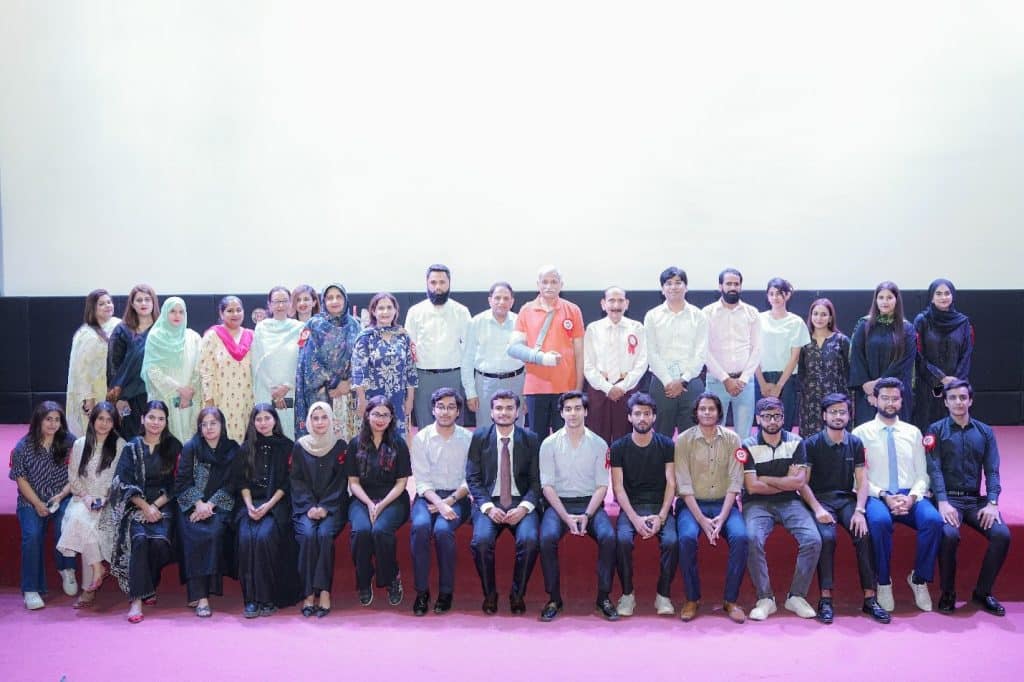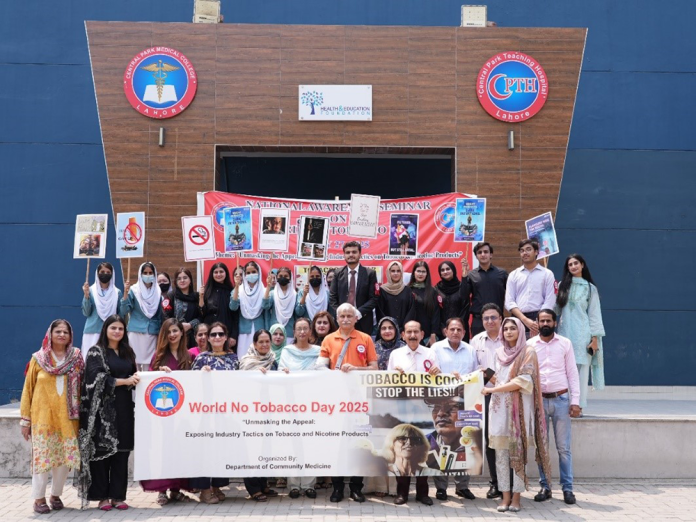Central Park Medical College (CPMC) organized a seminar to mark World No Tobacco Day with the objective of raising awareness among youth, students, and the general public about the harmful effects of tobacco use. The seminar also aimed to expose the deceptive tactics used by the tobacco and nicotine industries, especially their efforts to attract young people through flavored products and misleading marketing. The theme of this year’s seminar was “Unmasking the Appeal: Exposing Industry Tactics on Tobacco and Nicotine Products.”
Central Park Medical College Principal Professor Muhammad Amer Mian graced the occasion as chief guest. A large number of faculty members, students, and participants from various walks of life attended the seminar. Speakers highlighted key issues such as health hazards of tobacco, anti-smoking laws, and cessation techniques. Medical experts including Professor Dr. Muhammad Ashraf Chaudhry, Head Of Community Medicine – Dr. Awais Hussain Kazim, HOD Cardiology and Dr. Arslan Iqbal, HOD Pulmonology delivered insightful talks on the dangers of tobacco use, particularly among youth.

Professor Dr. Muhammad Ashraf Chaudhry shed light on the global and national impact of smoking, citing that over 8 million people die annually from tobacco-related illnesses, including about 160,000 in Pakistan. He emphasized the link between smoking and numerous health problems such as cancer, cardiovascular and respiratory diseases, and reproductive issues. He also explained various smoking cessation strategies, urging the need for willpower, medical support, and strict enforcement of anti-tobacco regulations.
Dr. Awais Hussain Kazim discussed the role of tobacco in causing heart diseases and stressed that smokers are significantly more likely to suffer from heart attacks, hypertension, and strokes. He underlined that quitting smoking is one of the most effective steps to reduce cardiovascular risks. Dr. Arslan Iqbal addressed the devastating impact of tobacco on lung health, stating that 90% of lung cancers are caused by smoking. He called for collective efforts to reduce tobacco use and promote healthier lifestyles.

The event also featured a student poster competition on the seminar’s theme. The top four participants were awarded shields and certificates. An awareness walk was held with active participation from faculty, students, nurses, and the public. In her concluding remarks, Dr. Mehnaz thanked all attendees and speakers for their contributions. Souvenirs and certificates were distributed among the participants by the chief guest. Professor Muhammad Amer Mian congratulated the Department of Community Medicine for organizing an informative and impactful event.


